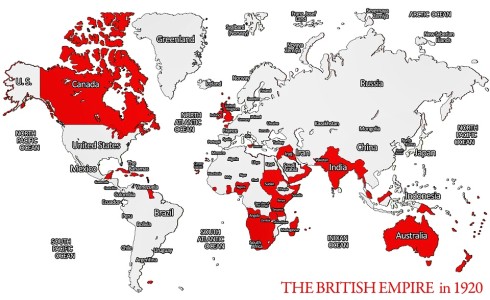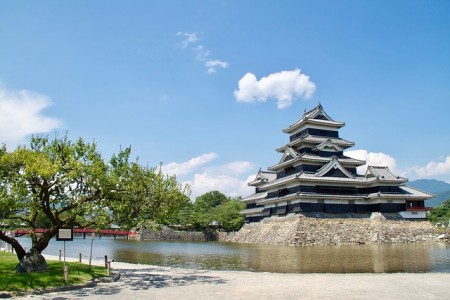Price formation: should we turn to economic nationalism?
Couple of months ago I have started a series of posts on price formation in the free market or how and why the free market does (not) work. Let us deviate from the topic by discussing the proposed alternative to the "neo-liberal" idea of the globalization and the free trade.
Note that in the post that follows I will not follow the usual practice of listing (referencing) the sources. Most of the sources I found while exploring this topic are extremely questionable as they try to promote ideological agenda instead of exploring ideas behind them.
Also be warned that text is rather long and the answer is rather obvious. No, we should not turn to economic nationalism. It is rather bad idea, which works only for strong nations, which are able to exploit more vulnerable nations.
What economic nationalism actually is?
The question is actually surprisingly quite a tough one, as people who are openly economic nationalists fail to as openly provide a definition to their ideology. Even if they do try to define it, they seem to provide conflicting definitions. For example, some economic nationalists fiercely reject "liberal propaganda" that economic nationalism embraces protectionism and mercantilism, while others admit the connection between these concepts. This lack of coherency is addressed in some of the sources, which usually claim that economic nationalism embraces numerous different economic policies (including the aforementioned ones as well as import substitution and planned economies), which could allow their nation to prosper at the expense of the other nations. Supposedly economic nationalism is different from, and thus much better than, other economic ideologies, because it embraces thousands of years of experience.

Strangely this experience is not recognized by the other economists, despite of hundreds years of research. This narrative inspires to make a comparison with folk medicine. Folk medicine has its long history, but not much of its "achievements" were confirmed by medical science. So if you really need help, you should turn to a medical doctor and not to the "experienced" grandma. I guess the same goes, with some caveats, for the economists.
Theoretical example
One of the more decent sources (see here though note that this source is far from being truly good - it still promotes ideological agenda and suffers from typical logical errors) provides an interesting example using wool and sweaters. The example goes as follows:
- People living in the nation A tend sheep and produce wool, the wool is exported to the nation B.
- People living in the nation B import wool and produce sweaters, which are exported back to the nation A.
- Ruler of the nation A does not like this, hence he imposes taxes on the exported wool and on the imported sweaters.
- The collected tax is reinvested in the nation A by building wool mills. Hence the nation A prospers!

But when you actually try to think about it, it occurs that it is not that simple. Just think what these steps do to the supply and demand curves. Most likely the demand curves remain where they are, as everyone still needs a couple of sweaters in winter. While the supply curve moves significantly to the left, because the lack of competition at lower prices. Namely the prices for the locally produced sweaters will grow until they will almost match the prices of the imported sweaters.
As the supply curve moves to the left, equilibrium point also moves to the left. This means that less sweaters are sold for higher prices. Hence some people are no longer able to afford buying sweaters. They will freeze in winter! What a prosperity!
Another key point to consider is that labor resource is limited (unless free movement of labor!), hence the wages should grow as industries compete for work force. The problem is that these two industries are mutually dependent, hence the competition for the work force between these industries is extremely weak. Hence the wages will grow slower than prices. Furthermore splitting the population between the two industries will decrease the supply of both wool and sweaters, increasing the prices even further.
Yes, these industries could try to attract workers from other industries. But why should ruler of the nation A apply the economic nationalism only to wool and sweater industries? The same thing goes on in other industries.
Want another complication? Think what nation B does in response. They could do something similar in other industry. But as I am already tired of writing about this nonsense, let me choose the simplest option. This means WAR! BUY our sweaters or DIE!
Yay stable economy! Yay unstable struggle for power!
No single individual can be self-sustaining and live in prosperity. We need other people to do what we can't do on our own. We need to delegate some functions to others and to return the favor we must take on some functions ourselves. We need to cooperate to live peacefully and to prosper. The same very logic applies at higher scale - no nation can be self-sustaining and have high standard of living.
Historical examples
Here is where the previously mentioned "decent" source fails (see here) by becoming heavily biased. This source provides three success stories and forgets to provide an analysis on hows and whys. The reader is left to delve in other biased posts on the same blog, which still neglect to mention the dark side of mercantilism. So while I am not that familiar with the contemporary example (China), I feel rather familiar with the history of Venice and the British Empire. I would like to add the Japanese Empire to the list as well.
Venice gained momentum in 1200s, when they invented ships, which were technologically superior to the ones used by their competitors. Hence they were able to gain trade and transportation monopolies, which they used to enrich their country. The caveat was that they enriched their country at the expense of the other nations, which had no other choice. As soon as the other nations gained alternatives (Christopher Columbus, Vasco da Gamma), they freed themselves and the prosperity of Venice declined. Also some nations got extremely pissed and declared war on Venice. The lesson is that Venice exploited its superior position to extract wealth from the other countries.

The British Empire isolated itself by imposing huge tariffs on some of the imported goods in around 1600s. This raised prices as well as created the need for the nation to expand. The expansion was necessary so that the country could produce everything its citizens needed. As a result the British Empire was at one time the largest country in the world. Also we could attribute the Great Famine in Ireland of 1840s (1 million people died, 1 million people immigrated) to the high tariff policy. At the same time all of the Europe suffered from the potato blight, but it hit Ireland the hardest, because the food prices in the British Empire were heavily inflated by the protectionist Corn laws. England suffered less as the Corn laws were beneficial for this part of the Empire. Repealing Corn laws lead to the decrease of the food prices and as a result it improved the standard of living of the poorer classes. Soon the British Empire abandoned other policies of economic nationalism and embraced free trade. The lesson is that the British Empire extracted wealth from their colonies and as soon as an important part of the supply chain collapsed paid the price with deaths of millions of their own citizens. Another lesson is that the ones who benefited from economic nationalism were the elite and not the ordinary people (who are rallied by contemporary economic nationalists).

From 1630s to 1850s Japan isolated itself from the rest of the world banning almost all foreign trade (with exception of couple of ports, which were open to ships from several countries). By the end of the isolation period Japanese people still lived as in 1640s. Japan was lagging behind the Western countries by 200 years. After the Meiji restoration (which ended the isolation period) Japan managed to catch up with the rest of the World in less than 50 years. By the First World War Japan became a major power. The lesson is that self-isolation freezes standard of living of otherwise very capable nation.
Final thoughts
By considering the theoretical and historical examples I have analyzed the core ideas behind economic nationalism. As far as I can tell economic nationalism stifles the competition, which leads to an increase in the prices (supply curves shift to the left). This increase does not contribute to an increase in the standard of living of the ordinary people, but helps to further enrich the local economic elite (increasing economic inequality). Furthermore in order for economic nationalism to work labor force must be allocated efficiently (so that nothing is wasted). This "efficiency" introduces additional fragility into the economy - as soon as something fails, the consequences are horrible.
Conclusion? Economic nationalism is a lie, which hides behind vague communication, cherry picking examples (e.g., the decent source lists only historical success stories neglecting essential "how" and "why" questions; the same problem is even worse in other sources), conspiracy theories and flawed logic in both economic and philosophical sense. Economic nationalists do not care about microeconomics (welfare of the individual people), they care only about macroeconomics (welfare of nation (whatever that means to them)). Thus economic nationalism does not solve microeconomic problems it claims to solve (mainly economic inequality). Furthermore because economic nationalist only care about their own macroeconomics, this raises tensions with other nations. And as history shows us this could result in war.
